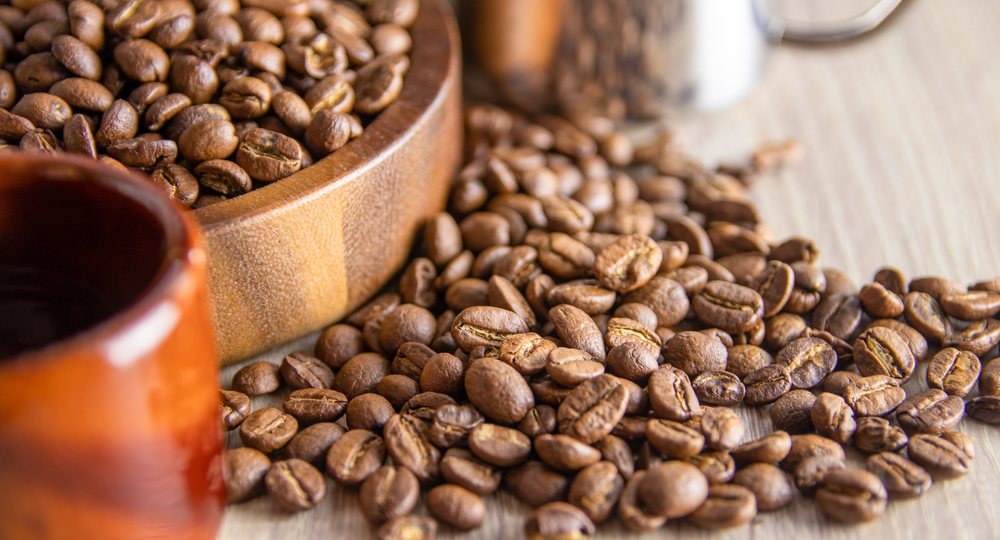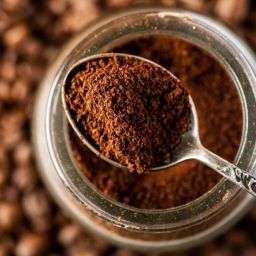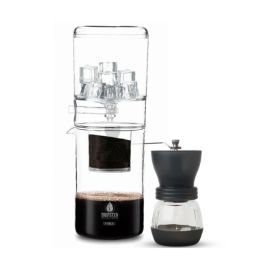
The journey of decaffeinated coffee began with a serendipitous discovery in the early 20th century. Ludwig Roselius, a German merchant, found that coffee beans soaked in seawater lost much of their caffeine while retaining flavor. This led to the development of the first commercial decaf process, patented in 1906, marking the birth of decaffeinated coffee. Since then, decaf coffee has evolved significantly, with advancements in decaffeination processes ensuring flavor preservation and health safety.
Why Choose Organic Decaf?
Opting for organic decaf coffee brings numerous benefits, primarily health and environmental. Organic decaf is produced without synthetic pesticides or fertilizers, reducing exposure to potentially harmful chemicals. Moreover, organic farming practices enhance soil fertility and biodiversity, making it a more sustainable choice. By choosing organic decaf, consumers support eco-friendly agriculture and enjoy a cleaner cup of coffee.
Understanding Organic Decaf Coffee
What Makes Coffee Organic?
For coffee to be labeled USDA Certified Organic, it must meet stringent standards. These include being grown without synthetic pesticides, herbicides, fungicides, or chemical fertilizers. Organic coffee farming utilizes natural fertilizers like compost and coffee pulp. This approach not only ensures the purity of the coffee but also promotes ecological balance and conserves biodiversity.
Decaffeination Processes
Several methods are used to decaffeinate coffee, each with its own impact on flavor and health:
- Swiss Water Process: This chemical-free method uses water, temperature, and time to gently remove caffeine. It’s renowned for preserving the coffee’s original flavor and is considered one of the safest and most environmentally friendly decaffeination processes.
- Direct Method (European or Traditional): Involves treating coffee beans with solvents like ethyl acetate or methylene chloride after steaming, followed by re-steaming to remove any residual solvent. While effective, there’s debate over the safety of solvent use.
- Indirect Method (European or Traditional): Similar to the Direct Method but starts with soaking beans in hot water rather than steaming. The caffeine is then removed with solvents. This method is widely used, though concerns about solvent residues persist.
- CO2 Process: Utilizes highly pressurized carbon dioxide to extract caffeine. It’s praised for its environmental friendliness and ability to maintain the beans’ integrity. However, the high cost of this method limits its widespread use.
Among these, the Swiss Water Process stands out for its commitment to health and environmental sustainability, making it a preferred choice for organic decaf coffee.
Best Organic Decaf Coffee Beans Reviews
In the realm of organic decaf coffee, several brands stand out for their commitment to quality, flavor, and eco-friendly practices. Here’s a look at some of the top contenders in the market.
LifeBoost Medium Roast Decaf
LifeBoost’s Medium Roast Decaf is celebrated for its meticulous production process. The coffee undergoes small-batch roasting, ensuring each bean is perfectly roasted for optimal flavor.
Notably, LifeBoost uses the Swiss Water Process for decaffeination, guaranteeing the absence of chemicals and preserving the coffee’s natural taste. Additionally, its low acidity makes it a great choice for coffee lovers with sensitive stomachs.
Volcanica Papua New Guinea Decaf Coffee
Volcanica’s Papua New Guinea Decaf Coffee is a testament to the brand’s dedication to quality and sustainability. The beans are small-batch roasted to maintain their distinct flavors. This coffee is not only organic but also fair-trade certified, reflecting Volcanica’s commitment to ethical sourcing. The Swiss Water Process is used here as well, ensuring a 99.9% caffeine-free product without compromising taste.
Kicking Horse Coffee, Decaf Dark
Kicking Horse Coffee offers a Decaf Dark that is both flavorful and eco-conscious. This 100% organic coffee boasts kosher certification, appealing to a wide range of dietary requirements. Its low acidity and versatility in brewing methods make it a favorite among decaf drinkers looking for a rich, smooth cup without the bitterness often associated with darker roasts.
Fresh Roasted Coffee, Swiss Water Decaf Colombian
The Swiss Water Decaf Colombian from Fresh Roasted Coffee stands out for its flavor and eco-friendly roasting process. Using the Swiss Water Process, this coffee offers a decaffeinated option that doesn’t skimp on taste, featuring subtle hints of walnut and honey. The brand’s commitment to sustainability is reflected in its environmentally friendly roasting practices, making it a choice for the eco-conscious consumer.
Allegro Coffee Organic French Roast
Allegro Coffee’s Organic French Roast is a bold choice for those who love a deep, smoky flavor in their decaf. Processed using the Swiss Water method in Vancouver, British Columbia, this coffee ensures a chemical-free cup that’s as rich and hearty as its caffeinated counterparts. Its complex flavor profile, featuring hints of berries, black pepper, and molasses, makes it a luxurious option for decaf espresso lovers.
Verena Street Coffee – Sunday Drive Decaf
Verena Street’s Sunday Drive Decaf offers a medium roast alternative for those who prefer a smoother, more mellow coffee experience. Certified organic and processed via the Swiss Water method, this coffee ensures a clean, flavorful cup. Its Rainforest Alliance Certification further attests to Verena Street’s commitment to sustainable farming practices. This coffee is perfect for those who appreciate a rich taste without the bitterness.
Brewing and Enjoying Organic Decaf Coffee
How to Brew the Perfect Cup
Brewing the perfect cup of organic decaf coffee requires attention to detail and an understanding of how decaf coffee’s unique qualities affect the brewing process. For optimal flavor, consider using a French press or pour-over method, which allows for better extraction of decaf coffee’s subtle flavors.
The water temperature should be slightly lower than for regular coffee, around 195°F to 205°F, to avoid extracting any bitter compounds. Cold brew is an excellent method for decaf, as it produces a smooth and mellow cup, highlighting the coffee’s natural sweetness and minimizing acidity.
Pairing and Recipes
Organic decaf coffee pairs well with a variety of foods. Its nuanced flavors complement both sweet and savory dishes, from chocolate desserts to hearty breakfast items. For a delightful coffee-based drink, try a decaf latte or cappuccino, using organic milk or plant-based alternatives to enhance the coffee’s natural flavors. Experiment with spices like cinnamon or nutmeg to add complexity to your decaf beverages.
FAQs
Q: Does organic decaf coffee taste different from regular coffee? A: While decaf coffee can have a slightly different flavor profile due to the decaffeination process, high-quality organic decaf coffee beans offer a rich and satisfying taste that closely resembles their caffeinated counterparts.
Q: Are there health benefits to drinking organic decaf coffee? A: Yes, organic decaf coffee provides many of the same antioxidants and health benefits as regular coffee, without the potential side effects of caffeine. Additionally, the absence of synthetic pesticides and fertilizers in organic coffee may reduce exposure to harmful chemicals.
Q: Is organic decaf coffee more expensive? A: Organic decaf coffee can be more expensive due to the more labor-intensive farming practices and the cost of the decaffeination process. However, many consumers find the health and environmental benefits justify the additional cost.
Conclusion: Embracing Organic Decaf Coffee
Embracing organic decaf coffee offers a myriad of benefits, from enjoying a delicious, healthful beverage to supporting sustainable farming practices. Whether you’re sensitive to caffeine or simply seeking a cleaner cup, organic decaf coffee provides a rich and satisfying experience without compromise. By choosing organic, you contribute to a healthier environment and a more equitable coffee industry, making each cup a small but meaningful step towards a better world.









